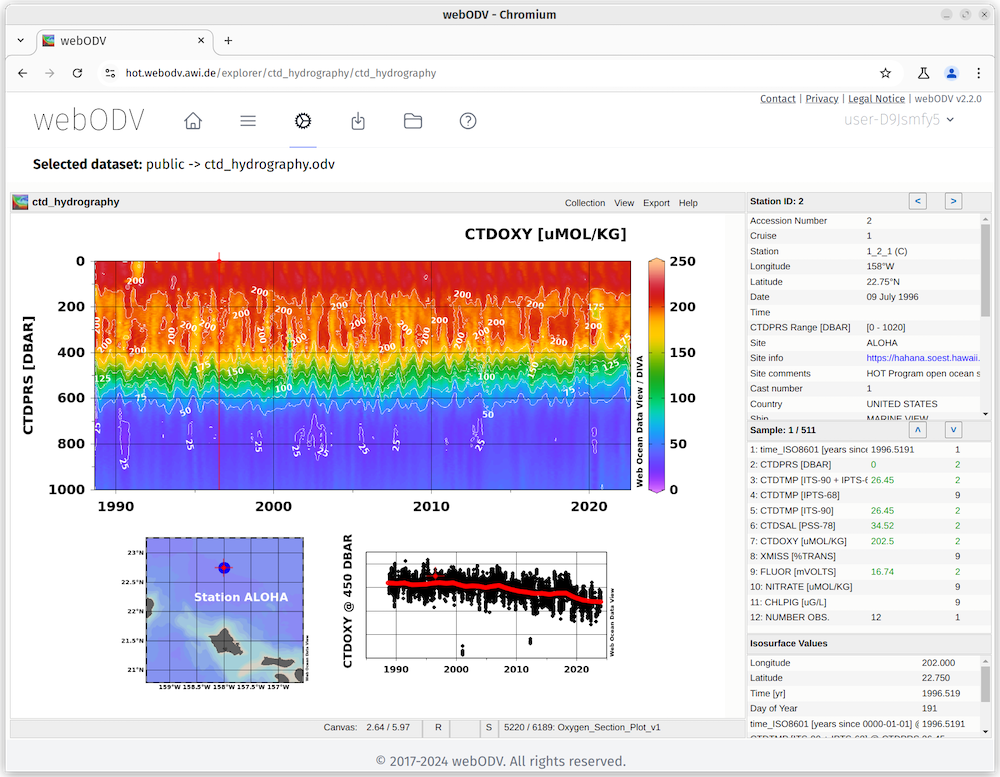 One of the longest running open ocean time-series on our planet, the Hawaii Ocean Time-series (HOT) can now be accessed using webODV at https://hot.webodv.awi.de.
One of the longest running open ocean time-series on our planet, the Hawaii Ocean Time-series (HOT) can now be accessed using webODV at https://hot.webodv.awi.de.
webODV [Mieruch and Schlitzer, 2023]) is the online version of the Ocean Data View (ODV) software. It is developed at the Alfred Wegener Institute, Bremerhaven, Germany with the aim to provide clients with user-friendly interfaces in their web-browser and access datasets that are centrally maintained and administered on a server using the full capacity of ODV.
This platform has recently been adapted to serve physical, biochemical, and ecological data from the HOT program. Dr. Sebastian Mieruch has generated an automated processing chain to aggregate, harmonize, and convert HOT data to the ODV format. Video tutorials for use of webODV to access, plot, and download HOT data can be found at https://hot.webodv.awi.de/docs.



